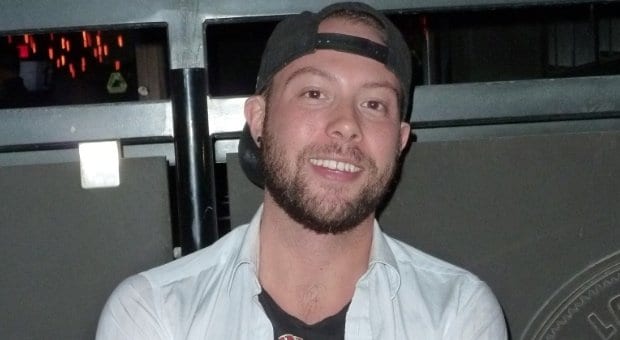Over the past decade, more than half of Calgary’s gay bars have closed, leaving the city with only Backlot, Texas Lounge and Twisted Element.
With a population exceeding one million people, Calgary is Alberta’s largest city. It’s home to Canada’s oil and gas industry, the Calgary Stampede, Prime Minister Stephen Harper and the country’s first Olympic Winter Games. Calgarians recently reelected the first Muslim mayor of a major North American city, Naheed Nenshi.
Calgary also boasts the world’s largest gay rodeo association (Alberta Rockies Gay Rodeo Association), North America’s longest-running annual gay multisport event (Western Cup), and the largest gay nightclub west of Montreal (Twisted Element).
So why did three more of the city’s gay bars — Club Sapien, FAB and the Calgary Eagle — close in 2012?
Club Sapien’s Mike Gray blames the numbers (which could include attendance, revenue and costs), while the Calgary Eagle lost its lease when the Calgary Municipal Land Corporation bought the building in which it was located.
Calgary has been losing gay venues for years. Prior to 2012, Metro Boyztown and Rek Room closed, along with Detour/Arena/Loading Dock/Victoria’s; Indulge; Rooks; and The Verge Restaurant and Bar.
Calgary is not alone in this trend. Gay bars are closing from Victoria (The Ledge in September) to Saint John, New Brunswick (Pump Nightclub closed in March 2012). Even New York City’s famed megaclub Splash closed in August 2012.
Twisted Element owner RJ Fafard laments the loss of gay spaces but thinks “it is part of a larger issue not limited to gay locations. Even straight bars are closing. It’s everywhere.”
Fafard mentions the challenges a business faces operating in an expensive city like Calgary. “There is no rent control, [and we pay both] a city and business tax,” he says. “I know my clientele have packed up and left.”
“It would be nice if Calgary would be like Montreal,” he says, referring to that city’s thriving gay neighbourhood.
“Gay districts have a lot to do with the city,” he says. He thinks cities should acknowledge their gay neighbourhoods with banners to be more recognizable.
“Being the only [gay] nightclub in town has its perks,” he admits, but “it has its detriments. A lot of people resent Twisted because it’s the only bar in town. A lot blame Twisted for the other bars closing.”
“We were the first gay nightclub to open on a major street,” he says. “Calgary was lacking a modern facility to bring the gay scene into the 21st century. We were lined up around the block on opening night.”
During that initial success, he remembers seeing “cops in here. I heard the words ‘not normal.’ The perception is they are being a little [homophobic]. One could be afraid of that. We live in the Bible Belt.”
“I’ve never been threatened,” says Blake Spence, 30, creator of Hot Mess, a monthly queer dance party. “But [I’ve] been in places where I didn’t feel welcome. You have to work really hard as a LGBT person to find a safe space [in Calgary].”
“People are looking for something, another place to meet,” he suggests. “We’re providing an alternative. People come to our events that don’t come to gay clubs. The music’s great; the crowd’s great.”
Spence, who used to host Hot Mess at the Calgary Eagle, says that bar’s closure “was too bad for the whole community.” He says he struggled to find another suitable location.
“It took us a while,” he says. “We found a straight bar, Local 522, and it works really well. I’m definitely going to keep doing what we’re doing.”
He too thinks the city’s gay spaces are “on the decline. I’ve seen a number of gay establishments close. Ten years ago there was a lot going on. What’s happening is not just in Calgary; it’s happening in many places. We feel it more because we have so few places to go.”
“Spaces closing [leave] the community spread out and [give] Calgary the reputation as lacking in LGBTQ culture,” Spence says. “Many people [who] grow up here leave for greener pastures in Vancouver, Toronto and Montreal, [which have] a thriving community with many outlets to explore one’s orientation and meet new people.”
Calgary “is certainly not a gay Mecca,” says Bill Taylor, 69, president of Gay Friends in Calgary. He points to the increasing cost of living downtown and the desire to own a home rather than a condo as reasons some people have left the Beltline, where Calgary’s gay community used to be concentrated.
Still, he believes gay people in Calgary are better off today. It’s “a healthier environment than it was,” he says, adding that young people feel more comfortable going into straight bars.
Katie LeBlanc, 21 and Leah Schmidt, 20, who run the University of Calgary’s Q Centre for Sexual and Gender Diversity, also see the local queer scene dwindling.
“We’re losing integral social gathering and networking [spaces], as well as a social scene in which we can be out and accepted,” Schmidt says. “We’re also losing valuable areas where the performance of queer art, as well as community outreach, could be accomplished.”
Schmidt and LeBlanc attribute the changes largely to growing social acceptance and the increasing ability to be “open and queer in regular society.”
However, they both say they’re less open about their sexuality when they’re in straight spaces. “It’s Calgary,” LeBlanc explains.
“It’s growing stronger as being queer is more acceptable. There is a decent network of community groups on most post-secondary campuses,” she says. “Outside, there is stuff, [but] you certainly have to look.”

 Why you can trust Xtra
Why you can trust Xtra


